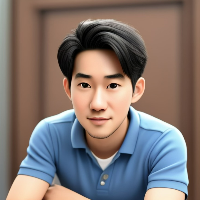- This topic has 15 replies, 14 voices, and was last updated 3 months, 2 weeks ago by
 Saranath.
Saranath.
-
AuthorPosts
-
-
2025-09-25 at 9:37 am #50840
 SaranathKeymaster
SaranathKeymasterPlease watch the VDO for topic discussion.
-
2025-10-04 at 6:44 pm #51130
 Wah Wah LwinParticipant
Wah Wah LwinParticipantBased on the provided scenario:
• As a health information professional, I should not disclose the patient’s information to my close friend, even if she may face consequences, because we must uphold the ethical principle of patient confidentiality and respect the patient’s right to control access to their own health information. The information channels must be in the appropriate process such as proper counseling session for the patient. The patient has the right to self-determination in deciding whether or not to disclose their condition to his family. Breaching this would harm the patient and violate serious ethical codes. In addition, interfering with family matters could undermine professional integrity and trust, as well as lead to legal consequences.
We must follow the fundamental principles by
• Right to self-determination: We must respect the patient’s right to make decisions about disclosure of their health condition.
• Doing good: We must ensure that the health information system is safe and protective for patients, while providing accurate health information through secure processes.
• Doing no Harm: We must protect patient confidentiality and safeguard their personal health information.
• At all times, we must follow ethical standards when handling patient information to maintain professional integrity.-
2025-10-08 at 9:56 pm #51235
Wai Phyo Aung
ParticipantYes, I totally agree the right to self-determination. Thanks Ama Wah!!
-
-
2025-10-05 at 3:42 am #51136
 Than Htike AungParticipant
Than Htike AungParticipantAs a health information professional, we must act as professionals and consider all cases professionally regardless of whether there is a personal connection or not. In this case, we must consider as a person we don’t know even, she is my friend or she is a celebrity.
What should you do? Can you tell your friend?
I should do nothing. And also cannot disclose this information my friend.Can you interfere with other people or family issue?
No, I cannot. But there is (at least in Myanmar) protocol for HIV disclosure and family member notification but its responsibility lies with visiting doctors and counselors.Should your friend not know about this because she might be at risk?
Yes, she might be at risk but as health information professional, we cannot disclose this information. The most I can do is referral to the responsible healthcare provider for counseling for disclosure and partner testing but it solely depends upon the patient.Fundamental principles
Self-determination: We must respect the patient’s right to control who knows about their medical condition.
Doing good: We can do good by ensuring that the patient is counseled appropriately and follow protocols for notifications through official channels.
Do no harm: Disclosing to my friend without the consent could harm the patient and also harm the trust of health system.Our obligation is to protect patient confidentiality and the right to hold the information lies within the patient. But we have to sure that the case is handled according to public health protocols.
-
2025-10-07 at 12:25 am #51180
 Kevin ZamParticipant
Kevin ZamParticipantAccording to the given scenario, my close friend’s husband has HIV and she did not know about that.
1. What should I do?
I should keep the patient’s information private and not tell anyone. My duty is to protect confidentiality.2. As a health information professional – can you tell your friend?
No, I cannot tell my friend. It would break patient confidentiality and professional ethics.3. Can you interfere with other people or family issue?
No, I cannot interfere in their personal or family matters. My role is only to manage patient information safely.4. But, should your friend not know about this because she might be at risk?
Even though she might be at risk, I still cannot tell her directly. I can encourage the patient to tell his wife or inform the doctor or counselor to handle it properly.5. How will you follow the fundamental principles about right to self-determination, doing good and doing no harm to others?
I respect the patient’s right to privacy (self-determination), I do good by protecting his trust, and I do no harm by avoiding gossip or breach of confidentiality.6. Isn’t it your obligation and the right of the subject to hold the information?
Yes. It is my obligation to keep the information confidential, and it is the patient’s right to decide who can know about his health condition. -
2025-10-07 at 10:07 pm #51200
 Jenny BituinParticipant
Jenny BituinParticipantAs a health information professional, I should uphold the principles of informatics ethics. I will not tell my friend or any other people because doing so is a violation of the Principle of Information Privacy and Disposition and it is against the law. As stated in the AMIA’s code of professional and ethical conduct of 2018, inappropriate disclosure of information can cause harm. My duty is to ensure the integrity and confidentiality of the patient’s data.
-
2025-10-07 at 11:29 pm #51202
Wai Phyo Aung
ParticipantBased on provided scenario;
What should I do?
• As a health information professional, I haven’t right to tell my friend about his husband information according to privacy of the patient. I must keep all patient information as confidential.Can you interfere with other people or family issue?
• No, I am not allowed to disrupt patient personal issue.
But, should your friend not know about this because she might be at risk?
How will you follow the fundamental principles about right to self-determination, doing good
and doing no harm to others? Isn’t it your obligation and the right of the subject to hold the information?
• Regarding to risk of transmission and harm to others, I can advocate the patient to follow precaution and procedure not to transmit the disease. I will encourage the patient to decide the family safety and protection the risk. -
2025-10-08 at 12:59 am #51207
 Myo OoParticipant
Myo OoParticipant1. What should you do?
I should keep the patient’s information confidential and not share it with anyone. My duty is to protect medical records.2. Can you tell your friend?
No. It is not allowed to share someone’s health information without their permission, even if it is my friend.3. Can you interfere with family issues?
No. I should not get involved in the patient’s personal or family matters.4. But should your friend know because she might be at risk?
I understand the risk, but I cannot tell her directly. If there is a real danger, I can report the case through official channels like a supervisor or ethics committee.5. How will you follow the principles of autonomy, doing good, and doing no harm?
Autonomy: Respect the patient’s right to decide who knows about their illness.
Doing good: Help indirectly by following procedures that protect health and safety.
Doing no harm: Avoid breaking trust or causing emotional or social damage.6. Isn’t it your obligation and the patient’s right to hold the information?
Yes, it is my obligation to keep the information safe, and it is the patient’s right to control who knows about their health condition. -
2025-10-08 at 5:27 pm #51224
Salin Sirinam
ParticipantAs a health information professional – can you tell your friend?
– As a health information professional, I cannot tell my friend about her husband’s HIV status because it would break confidentiality and professional ethics.Can you interfere with other people or family issue?
– I cannot interfere with family issues either. Disclosure should come through the patient or the doctor in charge.But, should your friend not know about this because she might be at risk?
– I believe that she should know for her safety. But the responsibility lies with the patient and the healthcare team to inform her.How will you follow the fundamental principles about right to self-determination, doing good and doing no harm to others?
– I respect the patient’s right to self-determination. I do good by ensuring that patient data is protected, and I do no harm by making sure no one is put at unnecessary risk.Isn’t it your obligation and the right of the subject to hold the information?
– It is the patient’s right to decide whether to share his health information with whom. My role is to protect that right and confidentiality.-
2025-10-08 at 9:58 pm #51236
Wai Phyo Aung
ParticipantI absolutely agree and got your point!! Thanks Salin!!
-
-
2025-10-08 at 8:27 pm #51226
 Nang Phyoe ThiriParticipant
Nang Phyoe ThiriParticipant•What should you do?
We should do nothing as the patient has a fundamental right to privacy.
•As a health information professional – can you tell your friend?
No. The person has full control over his own medical data, and medical professionals and informaticians must ensure that all protected health information (PHI) are handled with confidential manner. The disclosure of personal data without consent can lead to serious consequences and disrupt the trust of patients to the information systems.
•Can you interfere with other people or family issues?
No. As a health information professional, we must never disclose personal health data, especially sensitive information as it will be violation of ethical standards.
•But, should your friend not know about this because she might be at risk?
Yes, she might be at risk, but a health professional must never intervene directly into patient/family matters. Instead, we may encourage the patient (with proper clinical channels) to disclose himself, if the health condition can risk his spouse. However, the final decision to disclose is up to the patient himself.
•How will you follow the fundamental principles about right to self-determination, doing good and doing no harm to others?
I will follow the fundamental principles by:
Respect the patient’s autonomy – ensuring he has the authority to make decisions about his health information and respect of patient’s dignity, privacy and rights.
Doing Good – I must stay within my professional boundaries while promoting the well-being of all parties. If I am concerned for the spouse, I can encourage proper counseling and disclosure through clinical channels, not through personal communication. If I am still not sure of what would be the best for both parties, I can seek guidance through ethical board/committee without mentioning patient’s identification.
Do no harm- Avoid any action that could lead to harm. Disclosing patient’s HIV status without consent can lead to psychological stress, social stigma and self-harm. This can have a huge effect of patient’s trust on the health system.
•Isn’t it your obligation and the right of the subject to hold the information?
Yes, it is the right of patient to hold the information, and it is my obligation to protect the right.
I am obliged to respect the patient’s ownership of their health information, ensure the confidentiality and security of PHI, avoid disclosure without consent. -
2025-10-08 at 8:29 pm #51227
 Myo ThihaParticipant
Myo ThihaParticipantWhat should you do?
I will keep the patient’s medical information secure and private.As a health information professional – can you tell your friend?
No, I cannot tell my friend. Revealing a patient’s health information to anyone constitutes a serious breach of confidentiality, a violation of professional ethics, and a breach of data protection laws.Can you interfere with other people or family issue?
No, I have no right to interfere with other people or family issues. My duty is to handle health data professionally. Personal intervention will exceed my professional role and could cause emotional, social, and legal harm.But, should your friend not know about this because she might be at risk?
My friend should know, but I am not the person who has the right or authority to disclose.How will you follow the fundamental principles about right to self-determination, doing good, and doing no harm to others?
Autonomy: The patient has the right to decide who knows about his medical condition.
Doing good: The best I can do is to report the concern through proper medical and public health channels, not personally.
Non-Maleficence: This information could cause serious harm, like social stigma and marriage breakdown.Isn’t it your obligation and the right of the subject to hold the information?
Yes, as a health information professional, it is my obligation to hold and protect the information. -
2025-10-08 at 9:50 pm #51232
 Soe Wai YanParticipant
Soe Wai YanParticipantWhat should I do?
I cannot disclose the patient’s medical information to anyone including family members or friends. My duty is to maintain confidentiality and protect the integrity of the health record.Can I tell my friend?
No, I cannot. Sharing that information would be a serious breach of confidentiality and a violation of both ethical standards and privacy laws. My responsibility is to the confidentiality of the patient’s data not to personal relationships.Can I interfere with family issues?
No. As a health information professional, I have no right to interfere in personal or family matters.Should my friend not know because she might be at risk?
Although I am worried about my friend’s health and potential risk, it is not my place to disclose confidential information. Instead, I can encourage proper medical and ethical channels—for example, ensuring that the patient receives counseling and is informed of his duty to notify his spouse.How will you follow the fundamental principles about right to self-determination, doing good and doing no harm to others?
Autonomy: The patient has the right to decide who knows about his medical condition.
Doing Good: I can do good by protecting the patient’s confidentiality and ensuring the case is handled through proper procedures.
Non-Maleficence: The revealing the information to my friend could cause serious harm emotionally, socially and legally to both the patient and myself.Is not it your obligation and the right of the subject to hold the information?
Yes. As a professional, I am obligated to hold patient information in confidence. It is the patient’s right to privacy and control over their own medical information. -
2025-10-09 at 10:02 pm #51249
 Yin Moe KhaingParticipant
Yin Moe KhaingParticipantAs a health information professional, I have an ethical and professional obligation to maintain patient confidentiality.
I am not allowed to disclose the information to anyone without the patient’s consent. Revealing it would be a serious breach of confidentiality, violating both professional ethics and legal standards such as patient privacy laws.
I also cannot interfere with family or personal matters related to the patient. My duty is to manage and protect health information—not to make personal judgments or decisions about how the patient handles their condition. While I may feel concerned for my friend’s health and safety, I must act within my professional boundaries.
In terms of ethical principles:
Right to self-determination: The patient has the right to control who knows about his medical condition.
Doing good (beneficence) and doing no harm (non-maleficence): My role is to protect the patient’s rights and trust in the health system. Breaching confidentiality could cause emotional and social harm to both the patient and my friend.
Justice and professional integrity: All patients deserve equal respect for their privacy, regardless of personal relationships.
Although the situation presents a moral dilemma, the correct action is to respect confidentiality. If I am deeply concerned about the possible risk to my friend, I could encourage the patient (through proper channels) to disclose his condition to his spouse or seek counseling services, but I must never disclose it myself. Upholding confidentiality protects the integrity of the health profession and ensures trust in the healthcare system. -
2025-10-10 at 10:01 pm #51263
 Hteik Htar TinParticipant
Hteik Htar TinParticipantAs a health information professional, I must mmaintain the ethics and principles in performing my duties. I have to keep secure this data and try not to manipulate without voluntary consent of patient. This is my accountability.
I cannot tell my friend event though I am sure that she does not know this fact. It is patient’s privacy and I must give respect. According to the given information, I am not in condition to interfere the other people because I assume that they are not currently in emergency life threatening condition. I am also not incharge doctor for this patient’s treatment process.
So, for right to self determination, I have accountability to maintain the patient’s information and he has the right to maintain his autonomy.
For doing good and no harm to others, my actions must not harm to both patient and his family.
It is my obligation to keep the patient’s data secure as a professional -
2025-10-11 at 8:22 am #51270
 SaranathKeymaster
SaranathKeymasterYou did great as the health informatics professionals. Sometimes it’s difficult when you have multiple hats: as health informatics professionals, or as a friend!
-
-
AuthorPosts
You must be logged in to reply to this topic. Login here
